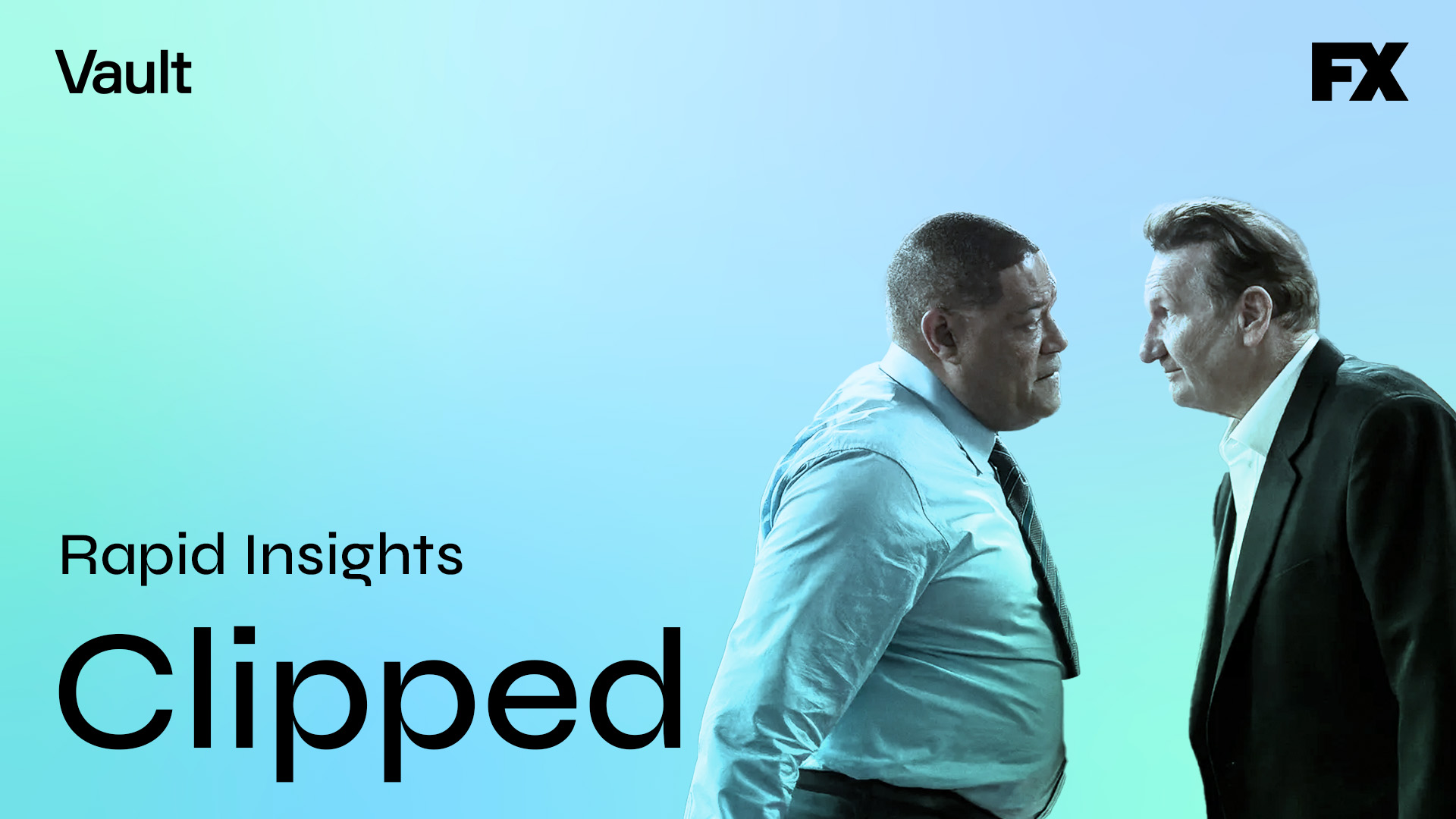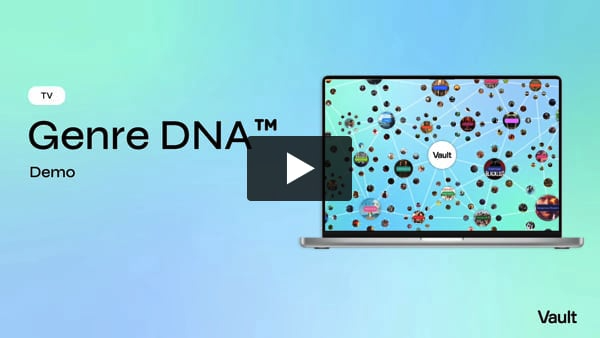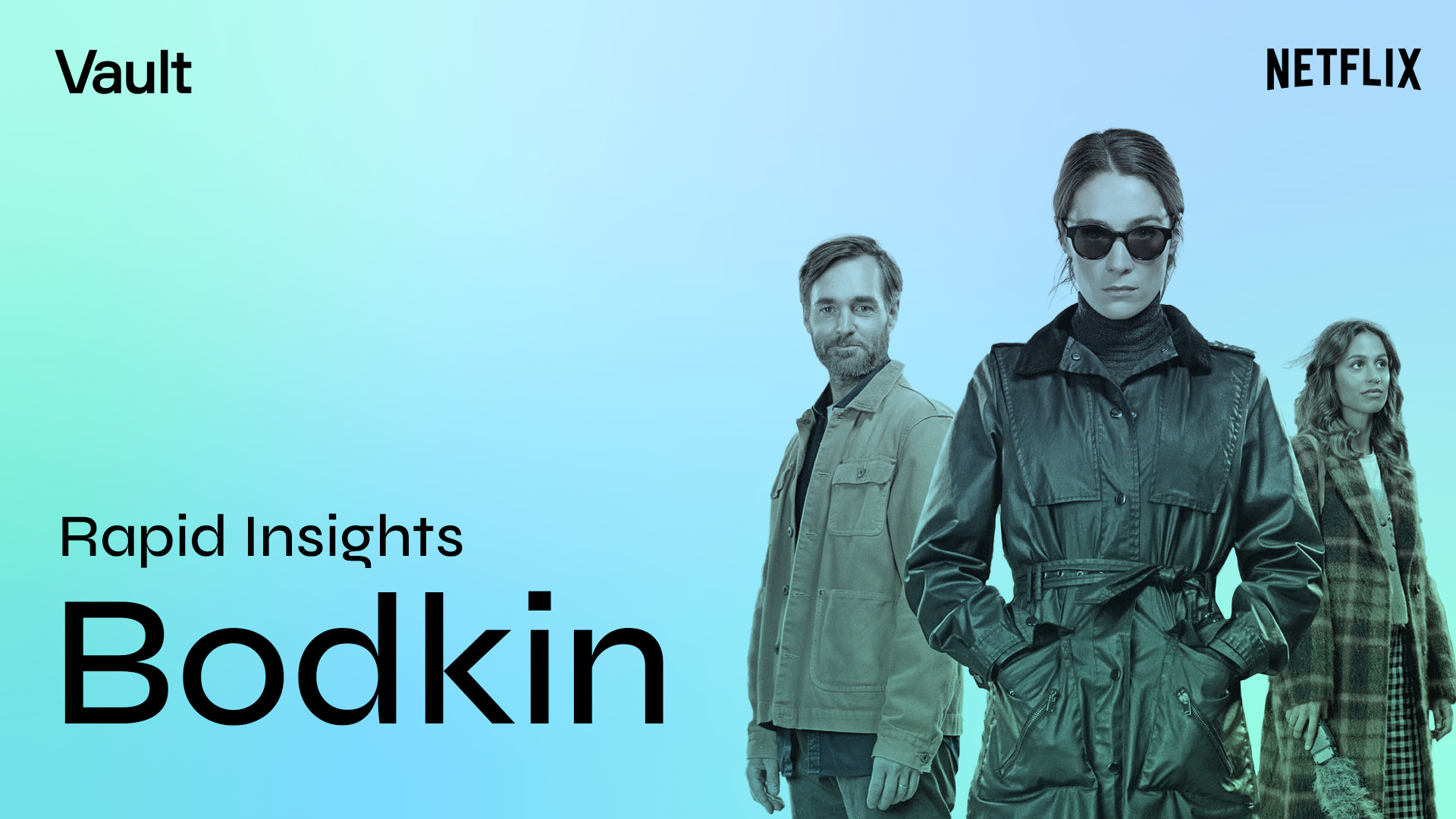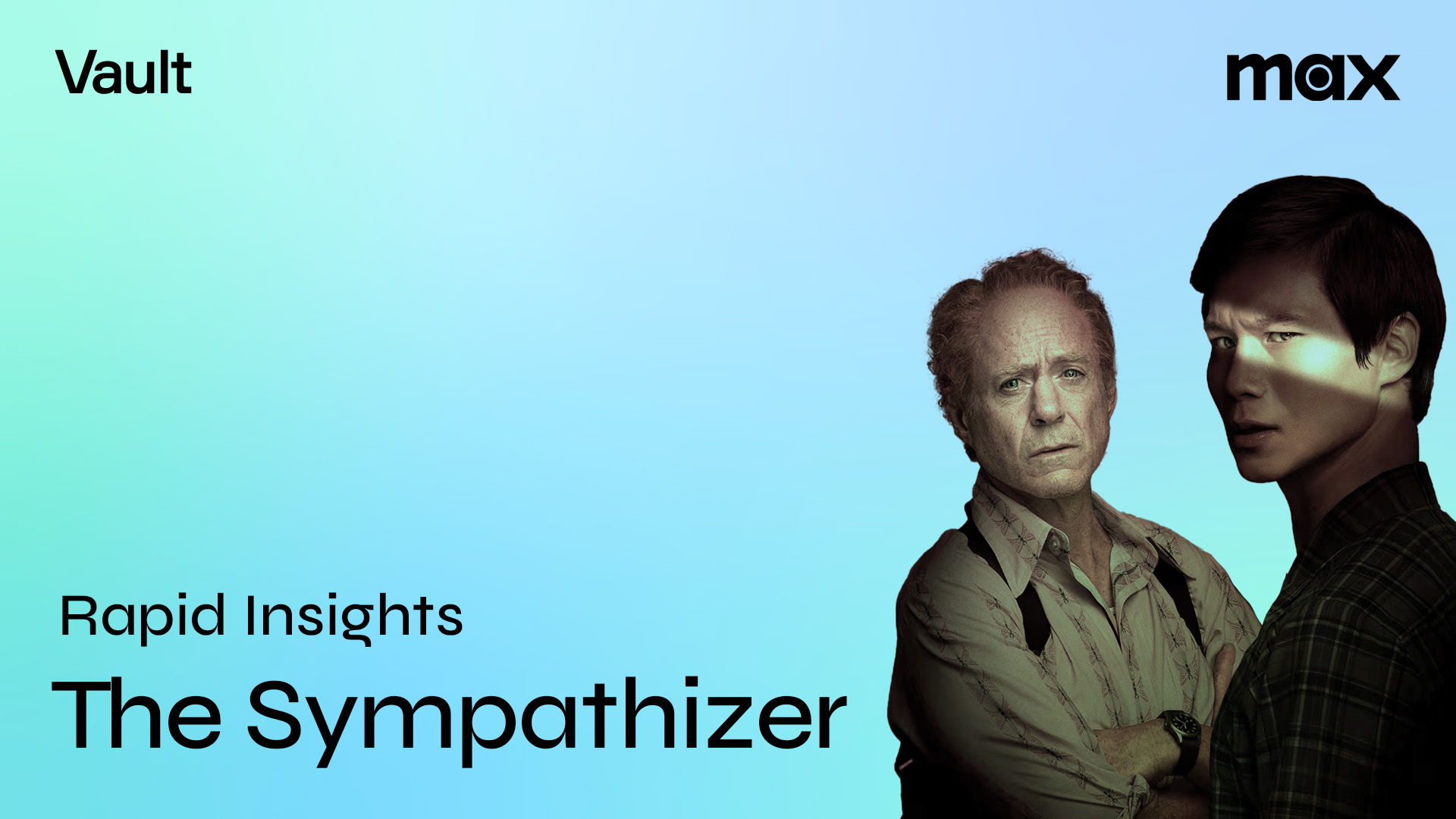Hot on the heels of HBO’s Winning Time: The Rise of the Lakers Dynasty comes a buzzy new show focused on the other Los Angeles-based NBA basketball team. FX on Hulu’s newly-premiered limited series tells the true behind-the-scenes story of the LA Clippers, famed coach Doc Rivers (Laurence Fishburne), notoriously racist owner Donald Sterling (Ed O’Neill), and the shocking leaked tape scandal that rocked the entire league.
Here’s what you need to know about Clipped:
Vault uses index scores to describe the impact a given story/theme/element will have on specific KPIs:
≤79 Disappointing 80-89 Challenging 90-109 Average 110-119 Promising 120+ Outstanding
Who’s been tuning in for this ripped-from-the-headlines drama?
Older men. We’re seeing a viewership that’s mostly male (63%) and mostly older (63% aged 30+), an unsurprising skew given its NBA focus. This profile is similar to the SVOD audience for Winning Time as well as other sports-based scripted shows like Mike, Heels, and Ballers.
How important is the ‘sports’ of it all?
Absolutely crucial. For Clipped–as with Lakers drama Winning Time–the core sports genre is what’s pulling in audiences; for both series, their Sports Focus (160) is their #1 overall viewership driver. Fans want a courtside seat to the real-life goings-on of the NBA, particularly the Coach-Athlete Relationships (140) and Mentorships (141) found within each professional team.
How is Clipped different from Winning Time?
It’s darker. Winning Time chronicles the cheer-worthy rise of a storied basketball dynasty, charting the Lakers’ ascent toward Winning (118) and Stardom (120) and, thanks to the players’ enduring renown, takes on a Celebrity Focus (125); viewers jumped on board to experience positive emotions like Admiration (124) and Awe (124). Clipped, on the other hand, in a sense tells the opposite story: a struggling team of Underdogs (148) brought even lower by a racist Scandal (124) filled with heated Confrontations (119) and Emotions Running High (118). Accordingly, audiences are tuning in expecting a much more negative viewing experience, with feelings like Fear (119), Aggressiveness (117), and Anger (117).
What happened with the leaked tape?
It led to an important moment in sports history. The publicized recording of team owner Sterling’s racist rants in 2014 resulted in a media frenzy that brought to light a host of Racial Issues (133), not only within the Clippers organization but also the wider NBA. Clipped showcases the increasingly tense Interracial Relationships (128) between Sterling and the team’s Black players and staff, including Coach Rivers, as it explores whether Sterling’s ultimate downfall created real, lasting change. This grappling with questions around racism and racial reckoning is a core ratings driver for the show.
How is Clipped’s online chatter?
Promising. The show maxed out our social buzz meter (at 160) with its two-episode June 4 premiere and spiked again with last week’s release of episode 3; it’s poised to follow in the footsteps of Winning Time, which saw similar renewed chatter for each weekly episode drop. For Clipped, viewers are largely talking about Donald Sterling’s repulsive Abuses of Power (133) during his reign as team owner as well as the broader racial issues his leaked tape brought to light.
Redefine your understanding of scripted TV subgenres
Introducing Genre DNA™ – 26 scripted TV subgenres redefined by groundbreaking AI analysis to reveal the true drivers of viewership.
See the insights that others can’t
Genre DNA™ goes beyond traditional TV genre classifications by analyzing over 1,000 scripted series on both linear and SVOD platforms from the last 5 years.
Each Vault Genre DNA™ report offers a precise analysis of your chosen scripted TV subgenre, uncovering its unique drivers of viewership.
*Publicly released trailers for series are evaluated using Vault’s algorithms – utilizing our proprietary 120K+ story element database alongside viewership performance and other datasets – to identify unique combinations of stories, themes, characters, and genre elements that will drive success.











